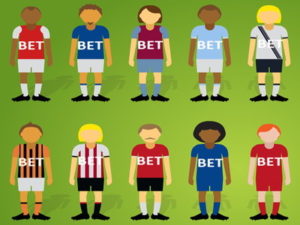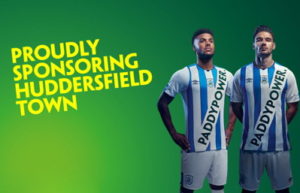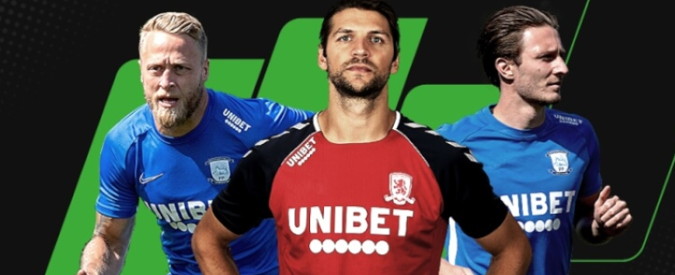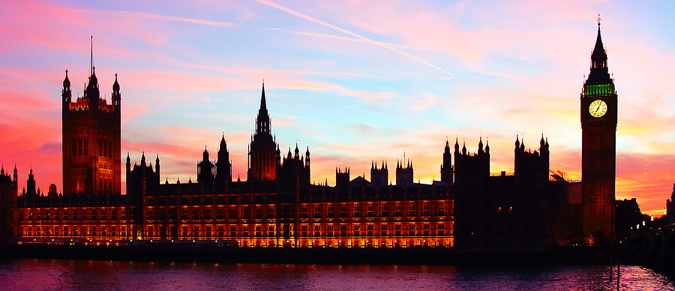Lords Suggest Betting Sponsorship On Football Shirts Should Be Banned
 The conversation around the use of betting sponsors on football shirts is one that has been raging for many years. During the 2018-2019 season, for example, 9 Premier League teams and 17 of those in the Championship had football jerseys adorned with the names of gambling companies and it increased for the following campaign.
The conversation around the use of betting sponsors on football shirts is one that has been raging for many years. During the 2018-2019 season, for example, 9 Premier League teams and 17 of those in the Championship had football jerseys adorned with the names of gambling companies and it increased for the following campaign.
Those that fight against the normalisation of betting and fear that younger people will be more likely to get involved with gambling believes that this is a major part of the problem. Now a report released by the House of Lords Select Committee appears to agree, saying that sponsorship from betting companies should be phased out by 2023.
It’s Been Building For Years
 Last year the betting company Paddy Power got into trouble for a stunt involving the Huddersfield Town Football Club kit. When the Terriers released information about their new kit it appeared to feature a huge sash right the way across the shirt emblazoned with Paddy Power’s logo. The club even wore the new kit during a pre-season friendly against Rochdale AFC at the Crown Oil Arena.
Last year the betting company Paddy Power got into trouble for a stunt involving the Huddersfield Town Football Club kit. When the Terriers released information about their new kit it appeared to feature a huge sash right the way across the shirt emblazoned with Paddy Power’s logo. The club even wore the new kit during a pre-season friendly against Rochdale AFC at the Crown Oil Arena.
Later the club confirmed that the kit was, in fact, not genuine and that it would instead be replaced by a shirt that didn’t have a sponsor on it. It was revealed that it was a stunt as part of Paddy Power’s ‘Save Our Shirt’ campaign and was done to draw attention to the fact that too many betting firms were involved in the sponsorship of football clubs.
It proved to be an expensive stunt, with Huddersfield Town being fined £50,000 by the Football Association for playing a match wearing the sponsored kit in the first place. It was also a remarkably brave campaign for Paddy Power to launch, given that they are a bookmaker and seemed to be suggesting that betting companies should be involved in football sponsorship.
Of course, it wasn’t all bad. The stunt earned Paddy Power more newspaper coverage than simply sponsoring Huddersfield Town would ever have done. Whilst decrying the nature of betting companies sponsoring football clubs, the Irish brand somehow managed to position itself as the betting company for ‘proper’ football fans to use moving forward.
Gambling Sponsorship Has Been Increasing
 The Paddy Power stunt came just days before it was revealed that the number of betting companies sponsoring Premier League clubs would actually be increasing for the following season. With 9 of the 20 clubs having a gambling enterprise as their main sponsor in the 2018-2019 season, that increased to a 50% share for the following campaign.
The Paddy Power stunt came just days before it was revealed that the number of betting companies sponsoring Premier League clubs would actually be increasing for the following season. With 9 of the 20 clubs having a gambling enterprise as their main sponsor in the 2018-2019 season, that increased to a 50% share for the following campaign.
That was going on at the same time as 17 out of 24 Championship clubs, or around 71%, were also being sponsored by betting companies. Paddy Power’s Save Our Shirt campaign might have been ingenious but it obviously wasn’t working. It suggested that gambling companies were ‘tightening their grip’ on the Premier League in terms of sponsorship.
Campaigners Have Been Worried
 The continuing presence of gambling sponsors in football has had campaigners extremely worried in recent years. Experts on the issue of problem gambling believe that the ever-increasing presence of betting firms amongst the sponsors of big football clubs is ‘disturbing’ as well as ‘worrying’. That is to say nothing of Sky Bet being the sponsor of the English Football League.
The continuing presence of gambling sponsors in football has had campaigners extremely worried in recent years. Experts on the issue of problem gambling believe that the ever-increasing presence of betting firms amongst the sponsors of big football clubs is ‘disturbing’ as well as ‘worrying’. That is to say nothing of Sky Bet being the sponsor of the English Football League.
Professor Jim Orford of Gambling Watch UK said in 2018 that betting was ‘increasingly…seen as part and parcel of following and supporting one’s favourite sport or team.’ With more than 430,000 adult problem gamblers in the United Kingdom, it’s no wonder that campaigners have been focussing on the number of shirt sponsors in football as an area of concern.
It’s not just main sponsors that are the concern, either. As the 2019-2020 campaign got underway only three Premier League sides had no betting partnerships of any kind. Official partnerships with gambling companies were in place for top sides such as the eventual champions Liverpool, showing the ever-present nature of gambling businesses even if not the main sponsors.
192-Page Report

The House Of Lords Cross-Party Select Committee has produced a 192-page report into gambling, with many believing that the 2005 Gambling Act needs an urgent review. Targeting gambling and sport, the Committee said, “There should be no gambling advertising in or near any sports grounds or sports venues, including sports programmes.”
Whilst horse and greyhound racing will be immune from any restrictions brought in because of the close relationship between the two sports and gambling, only clubs outside of the Premier League will have time to adapt to new recommendations. The report said removing shirt sponsorship would ‘not unduly harm Premier League clubs but it would very probably have a serious effect on smaller clubs’.
The thought process is that clubs in divisions below the Premier League should be allowed to see out their current contract with gambling companies but should not enter into any new ones over the next three years. Lords were critical of the whistle-to-whistle ban on gambling adverts when everyone watching matches can see sponsorship throughout the 90 minutes.
How The EFL Have Responded
 The English Football League has replied to the Lords report in a somewhat feisty manner, calling for an ‘evidence-based approach’ to tackling problem gambling. It pointed out that the gambling sector contributes as much as £40 million per season to the EFL, stating that this ‘significant’ amount of money is more important than ever after the recent cessation of football for a period.
The English Football League has replied to the Lords report in a somewhat feisty manner, calling for an ‘evidence-based approach’ to tackling problem gambling. It pointed out that the gambling sector contributes as much as £40 million per season to the EFL, stating that this ‘significant’ amount of money is more important than ever after the recent cessation of football for a period.
The EFL feels that working alongside gambling companies to prevent problems from developing would be more useful than an outright ban, pointing to the ‘long-standing’ relationship between gambling and football. The EFL’s statement also criticised the possibility of a ‘blunt instrument’ of a blanket ban being used. They said:
“…The League firmly believes a collaborative, evidence-based approach to preventing gambling harms that is also sympathetic to the economic needs of sport will be of much greater benefit than the blunt instrument of blanket bans.”
James Grimes, a former gambler and the man behind the charity The Big Step, said that they welcome the recommendation from the Lords and said that football is currently ‘saturated’ with gambling adverts. He said, “No child should be exposed to adult products as prevalently as it is with gambling in football.”



